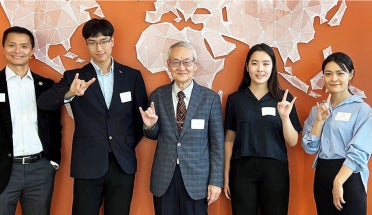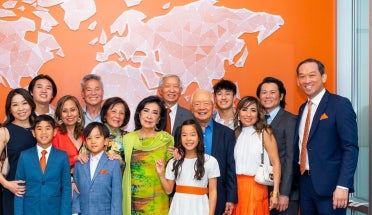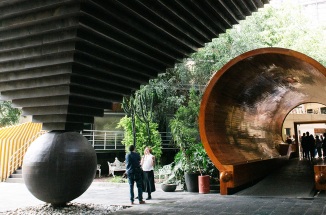
FILUNI Conference Unites Authors, Scholars, Artists in Mexico City
- Sep 27, 2023
- Global Alumni Relations
- by Ellen Stader
Editor’s Note: This story is part of Texas Global’s series on The University of Texas at Austin’s leadership and activities at FILUNI 2023, a multinational book festival and conference that took place Aug. 29-Sept. 3 in Mexico City. The largest international Longhorn delegation in history — more than 140 people representing 23 units — traveled to the event, which attracted 42,000 attendees from 11 countries.
The University of Texas at Austin’s commitment to the creative arts and culture was evident at the FILUNI book festival and conference.
Longhorns contributed to FILUNI’s program with an impressive panoply of concerts, film screenings, podcast recordings, readings, exhibitions, master classes, and book signings. Faculty and graduate students presented their books and research alongside peers from the host university Universidad Nacional Autónoma de México (UNAM) and other institutions from across Latin America.
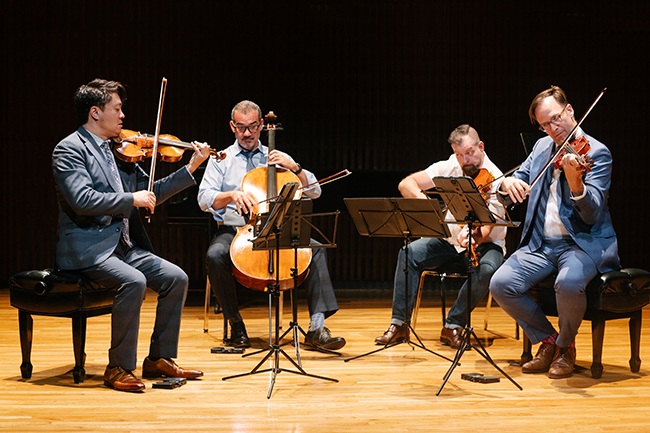
The week began with a mesmerizing performance by UT Austin’s string quartet in residence, the world-renowned Miró Quartet. Bookending the program, FILUNI participants enjoyed concerts by two trombone ensembles: the 16-member UT Trombone Choir, directed by Nathaniel Brickens, and the 14-member UNAM Trombone Ensemble, directed by Marcia Medrano Serrano, who served at UT Austin as a 2023 COMEXUS Fulbright-García Robles Visiting Chair. This faculty partnership exemplifies UT and UNAM working in tandem to engage in cultural exchange, disseminate research and creative work across borders, and strengthen academic relations between the United States and Mexico.
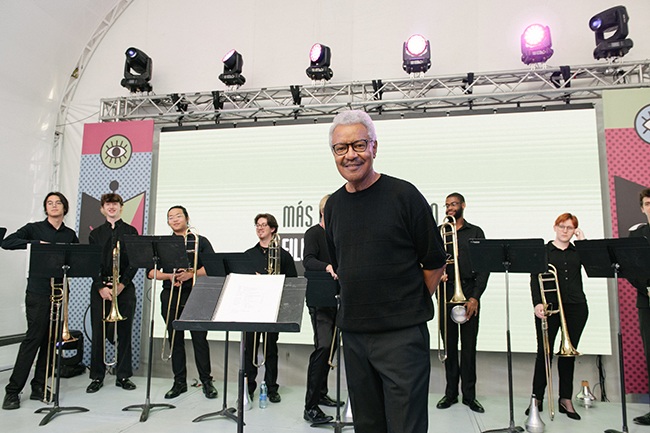
FILUNI highlighted commonalities across languages, nations and populations in the forms of poetry and prose. Professor Gabriela Polit Dueñas and graduate students from the Department of Spanish and Portuguese discussed and read from their story collection, “Contar Historias: Escritura creativa en el aula (Telling Stories: Creative Writing in the Classroom),” published by the University of Texas Press.
The book’s poignant essays and stories were written in Spanish by students in the department’s Spanish Creative Writing Initiative, revealing a diversity of authors’ perspectives that spans an array of cultural, linguistic and geographical backgrounds. Many had never before written a creative work in Spanish.
“This celebration of voices in Spanish, published by a press in the United States: It’s almost a political achievement,” said Polit Dueñas, editor of the book, which was funded in part by the Texas Global Publication Fund. “Spanish is widely spoken in the U.S. but does not have comparable representation institutionally. Showing that Spanish is not only a working language but also a creative language with cultural richness — and doing this with the legitimacy of a U.S. university seal — is very important.”
Underscoring the conference’s emphasis on a multiplicity of languages and experiences, graduate student Maria Gómez de León, UNAM alumna and fellow at UT Austin's Michener Center for Writers, led a multigenerational group of UNAM poets in a roundtable reading in Spanish.
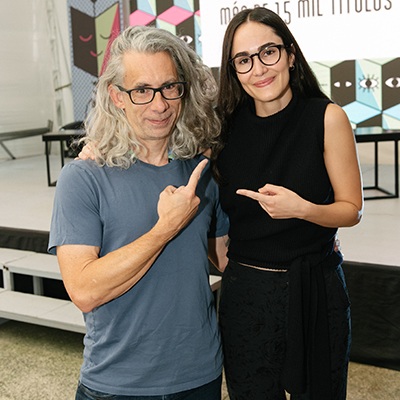
Besides interviewing Gómez about literary creation, internationally acclaimed author and Michener Center Director Bret Johnston also offered an interactive creative writing master class in English to an enthusiastic room packed with students, faculty and other attendees.
Johnston counseled would-be writers against the oldest advice in the writing world: “Don’t write what you know. Instead, write what you’re afraid to understand,” he recommended. “That fear will lead you toward the most profound part of your being. Write to scare yourself, to challenge yourself, to understand more about your shadows. Write to become more than you think you are.”
Another benefit cited by many FILUNI participants, including four Moody College cinematographers, was exposure to new audiences. Professors PJ Raval, Iliana Sosa, Miguel Alvarez and Ya’Ke Smith each screened their films, which explored respectively the complicated realities of the trans community in the Philippines; elders in Mexico; migrant workers and veterans in Texas; and descendants of enslaved people in Texas.
Adela Pineda Franco, director of UT's Teresa Lozano Long Institute for Latin American Studies (LLILAS), led a conversation with Senior Vice Provost for Global Engagement and Chief International Officer Sonia Feigenbaum and UNAM scholars about the revitalization of Indigenous languages in the Americas.
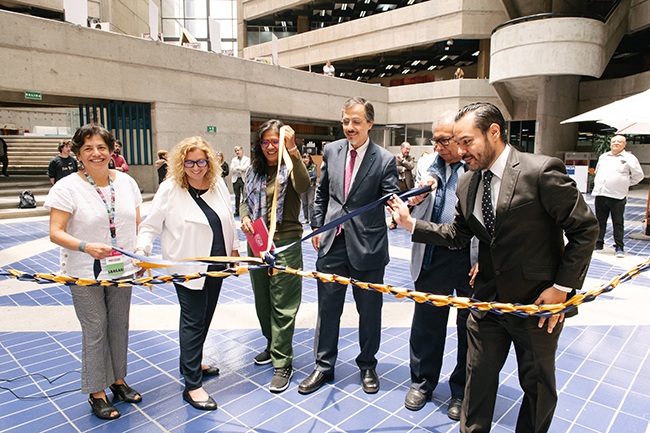
The LLILAS Benson Latin American Studies and Collections co-hosted a stunning exhibition at the National Library of Mexico. “A New Spain: Neo-Hispanic Jewels” featured facsimiles of holdings from the Nettie Lee Benson Latin American Collection and the C.L. Sonnichsen Special Collections Department at UT El Paso. Benson representatives also participated in sessions on digital collections and collaborative digital scholarship.
Adriana Pacheco — LLILAS fellow, member of the International Board of Advisors and founder of the podcast “Hablemos, Escritoras” — conducted panel discussions and live recordings with numerous FILUNI participants, including UT Austin professors Stacey Sowards and Polit Dueñas, interviewing the authors about their books, writing processes and aspects of the industry.
Pacheco convened several experts in Latin American publishing for a conversation about the challenges of literary translation. Legendary author Angelina Muñiz-Huberman, winner of multiple Mexican national literary prizes, graced the stage alongside Mexico City writers Mónica Lavín, Tanya Huntington and UNAM’s Rosa Beltrán, in addition to editor Rose Mary Salum and translator Dorothy P. Snyder. The group offered their various experiences and illuminated many pitfalls in writing, editing and translating works from Spanish to English.
“If one translator is invisible, all the translators are invisible,” said Pacheco, summing up the weighty panel discussion. “If the producers are invisible, our writers are invisible. But readers can help with that ... so that the critics, the book clubs, researchers, master's students, doctoral students, publishers, awards, all lead to writers. It seems to me that the only way to deal with this issue is to have more of these conversations.”

